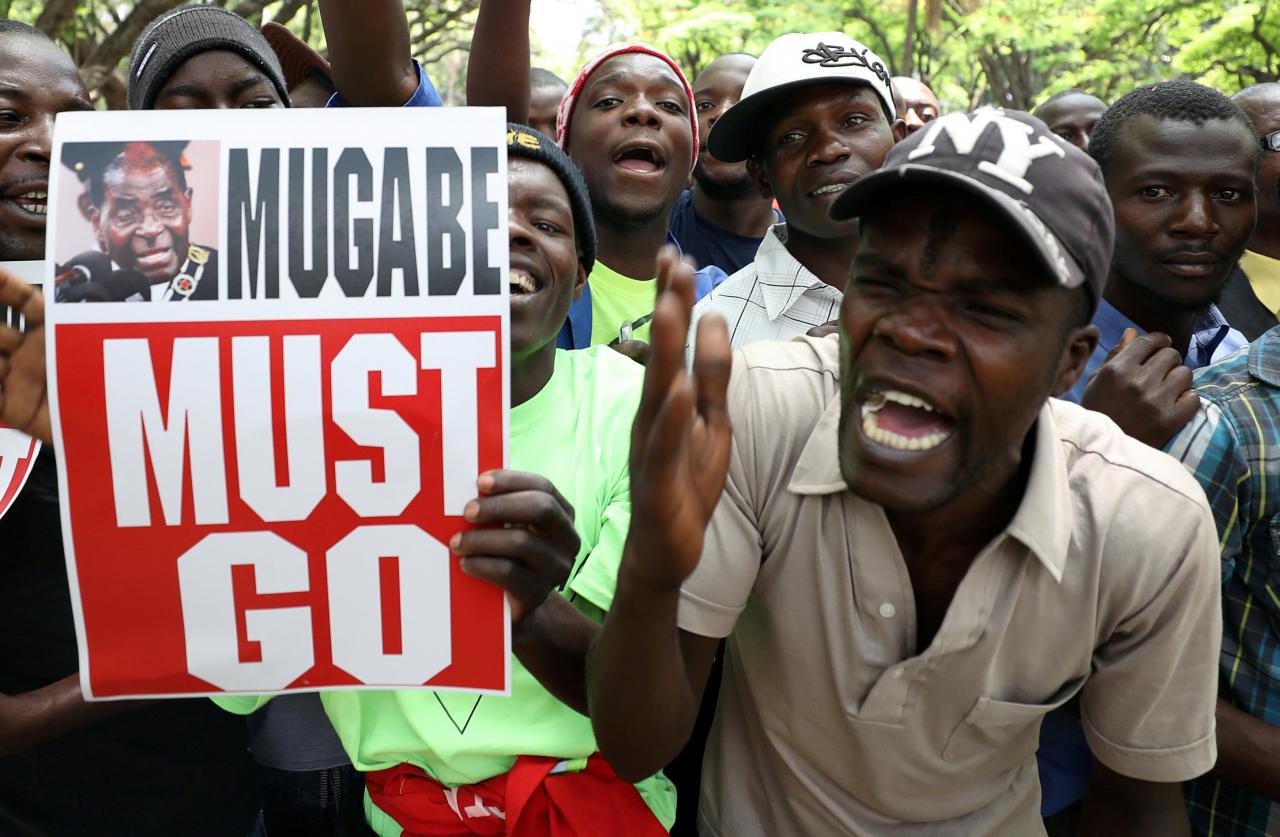HARARE, (Reuters) – Robert Mugabe resigned as Zimbabwe’s president on Tuesday a week after the army and his former political allies moved against him, ending four decades of rule by a man who turned from independence hero to archetypal African strongman.
The 93-year-old had clung on for a week after an army takeover and expulsion from his own ruling ZANU-PF party, but resigned shortly after parliament began an impeachment process seen as the only legal way to force him out.
Wild celebrations broke out at a joint sitting of parliament when Speaker Jacob Mudenda announced Mugabe’s resignation and suspended the impeachment procedure.
People danced and car horns blared on the streets of Harare at news that the era of Mugabe – who has led Zimbabwe since independence in 1980 – was finally over.
Some people held posters of Zimbabwean army chief General Constantino Chiwenga and former vice president Emmerson Mnangagwa, whose sacking this month triggered the military takeover that forced Mugabe to resign.
Mugabe is the only leader Zimbabwe has known since a guerrilla struggle ended white-minority rule in the former Rhodesia.
During his reign, he took the once-rich country to economic ruin and kept his grip on power through repression of opponents, although he styled himself as the Grand Man of African politics and kept the admiration of many people across Africa.
The army seized power after Mugabe sacked Mnangagwa, ZANU-PF’s favourite to succeed him, to smooth a path to the presidency for his wife Grace, 52, known to her critics as “Gucci Grace” for her reputed fondness for luxury shopping.
But Mugabe refused to resign, prompting the impeachment procedure which would have been the only legal was to force him out.

Mnangagwa, whose whereabouts are unknown after fleeing the country in fear for his safety, is expected to take over as president.
A former security chief known as The Crocodile, he was a key lieutenant to Mugabe for decades and stands accused of participating in repression against Zimbabweans who challenged the leader.
Reuters reported in September that Mnangagwa was plotting to succeed Mugabe, with army backing, at the helm of a broad coalition. The plot posited an interim unity government with international blessing to allow for Zimbabwe’s re-engagement with the world after decades of isolation from global lenders and donors.
Mugabe led Zimbabwe’s liberation war and is hailed as one of post-colonial Africa’s founding fathers and a staunch supporter of the drive to free neighbouring South Africa from apartheid in 1994.
But many say he has damaged Zimbabwe’s economy, democracy and judiciary by staying in power for too long and has used violence to crush perceived political opponents. The country faces a foreign exchange payments crisis and roaring inflation.
Since the crisis began, Mugabe has been mainly confined to his “Blue Roof” mansion in the capital where Grace is also believed to be.









